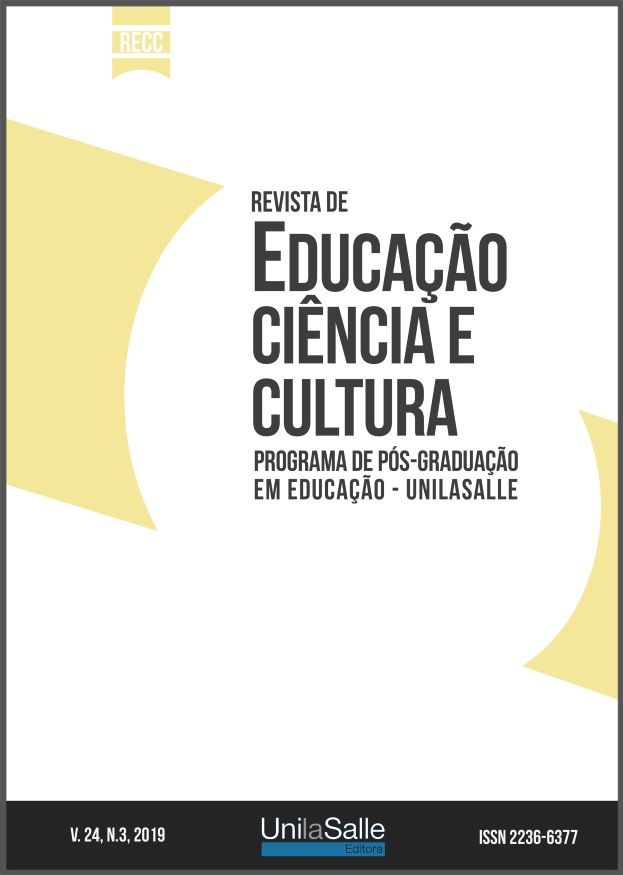Masculinity’s and femininity’s expectations surrounding memes: school, youth and pranking
DOI:
https://doi.org/10.18316/recc.v24i3.5491Keywords:
Youth, School, Gender, Social Media.Abstract
This article approaches social expectations towards masculinity and femininity, involving students from a state school in Guarujá/SP, and the mechanisms they develop in order to deal and play with these expectations. This issue was brought to attention as a consequence of ethnographic approach and workshops about the methodology of a qualitative research made at the school. During these workshops, the teenagers were recognized as decision-makers, whose dialogue is backed by their differences and the denaturalization of principles. With the material collected, a content analysis was made from categories organized in sections. The school is an important space for the development of social skills among teenagers, and it influence the dynamics of femininity, masculinity and sexuality, usually as a result of setting out only one perspective and considering illegit any deviant bodies or attitudes. Social media and memes are at the core of contemporary youth’s configuration and set up another space to socialize and build cultural identities (which were used as triggers during the debates at the workshops). The outcome was the recognition of sexuality as a conflictual dimension for the participants and particularly restraining for girls, while
encouraging for boys. Pranking has been identified as an agency tool that is used in different ways by girls and boys in face of social norms, but also to reinforce hegemonic ideas when girls avoid behaving as to be considered a “bitch”,or boys avoiding to become a “fag”. In many situations, it’s been clear that gender expectations might turn into violence, due to the restraint of sexual investigation on girls and the obstruction of emotional attachment on boys. However, these teenagers are not entirely represented by the social norms and their speeches and practices, they are able to enhance their repertoires in face of a dialogue, which indicates the possibility of lowering naturalizations surrounding masculinity and femininity.
Downloads
Published
Issue
Section
License
Authors must submit their manuscripts to be published in this journal agree with the following terms:Authors maintain the copy rights and concede to the journal the right of first publication, with the paper simultaneously licensed under the License Creative Commons attribution that permits the sharing of the paper with recognition of authorship and initial publication in this journal.
Since the articles are presented in this journal of public access, they are of free use, with their own attributions for educational and non-commercial purposes.
The Periodic Journal of Education, Science and Culture in http://www.revistas.unilasalle.edu.br/index.php/Educacao was licensed with a Creative Commons - Attribution - Noncommercial 3.0 Not Adapted.


